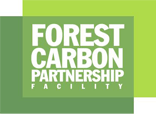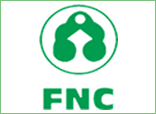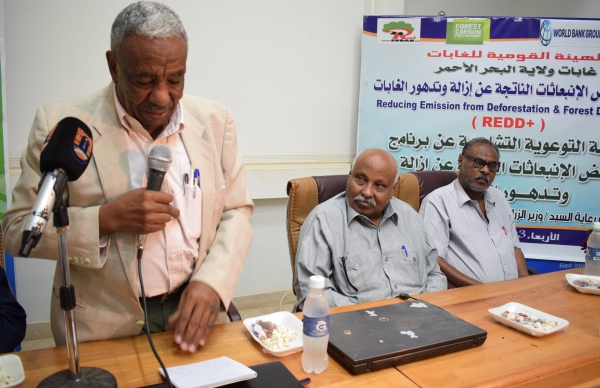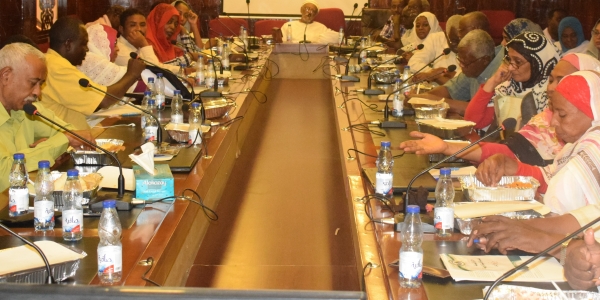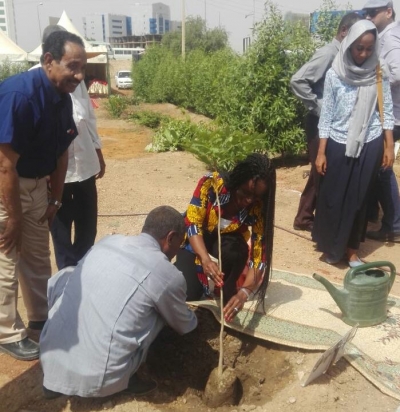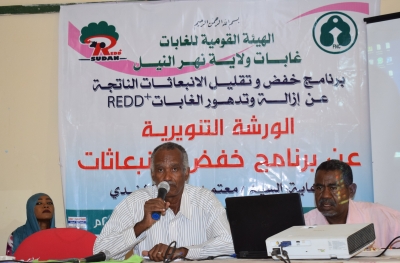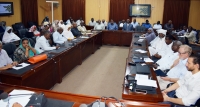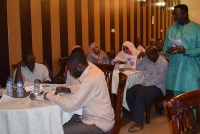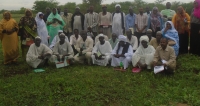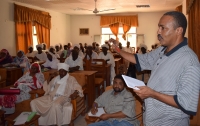Awareness campaign For REDD+ programmer ,Red sea state, 3 October 2018
The workshop was took place on 3 October 2018, elkhaber hall for international conference, Red sea
The workshop was attended by 72.
19Female.
53 male.
The participant involve wide spectrum of representation Including:- Ministry of agriculture livestock, and fishers , Ministry of agriculture / local of sinkat , Ministry of environment and natural resources ,Council of environment and natural resource, Director of Horticulture Department , Administration of Wildlife Management , Director of agriculture extension Department , Director of soil conservation, Director Manager of livestock , Director Manager of agriculture land, Forests National Corporation, General Directorate of Plant Protection , Representatives of local sinkat , Local Reprehensive of Sinkat, Tokar, Haya, Gneeb oleeb, Kalaneebeb , Halaibs, Hallok, Gebet elmaden and dreeb .
Objective of the workshop:-
To aware the community and stakeholder about REDD+ activities, objectives and the role of forests in climate change.
Workshop started by Quran and then opining remarks from:- Mr. Musa Abdalla Eisa – General of red sea forests state, Prof Ahmed abdelaziz, manager of university of Red Sea , Mr. Isam eldeen sorkti – General Manager of ministry of agriculture livestock.
The outcome of the workshop was 20 recommendations as follows
- The importantance of this kind of awareness companies and the survey visit
- Restore the concept of forests and deserts.
- Restore the culture of popular forests.
- The contribute of transport to enhance GHGs emission, need awareness.
- Activation the law and regulation to protect the forests.
- Valuation effort of Forests National Corporation to protect the forests.
- The role of stakeholder to success the REDD+ pogramme.
- Biodiversity of vegetation cover of the state, introducing the mesquite tree (Boscia Senegalensis) to combating desertification.
- The important of Mangrove forests especially in the coast area.
- Benefit of mangrove forests for the ground water.
- Management and admistrarion illegal cutting.
- Illegal cutting, the main cause of deterioration of environment.
- Studies related to climate change should be covered all states.
- Training to pasture by local language.
- Management of track of pasture (Massmart).
- Natural conservation solution for illegal cutting and over grazing.
- Consumption of charcoal and gases.
- Transference experience from another states to Red sea state.
- The important of include participantation of local community.
- Forests and wildlife is the tow faces for coins.
Validation Workshop for Developing Feedback and Grievance Redress Mechanism study (FGRM) for Sudan’s REDD+ Programm
27 September 2018
This workshop was intended as a validation workshop for the study of "Developing Feedback and Grievance Redress Mechanism, (FGRM) for Sudan’s REDD+ Programme" undertaken under the REDD+ Sudan. The specific objectives of the workshop were as follows:
- Sharing the study and its results with the project stakeholders;
- Validation of the study
3 .Providing a platform for the discussion of developing Feedback and Grievance Redress Mechanism for Sudan’s REDD+ programme issues.
- Soliciting and generating recommendations that are likely to help the REDD + and other actors in natural resources management including Government of Sudan and its international partners and civil society organizations SCOs
Participants: The Workshop was attended by 45 persons out of whom 64.4% were males and 35.6% were females. The participants involved a wide spectrum of representation including staff of Forests National Corporation (FNC); Research Institutions; Educational Institutions; Higher Council for Environment and Natural Resources; Private sector; Related Ministries (Ministries of Agriculture and Forests, Minerals, Oil and Gas, Animal Resources; Department of Wildlife); Sudanese Agricultural Council; CSOs; and interested researchers and environmental activists
Mission from World Bank came to Sudan for REDD+ program .during September 16- October 1 , 2018,.
Aimed for reviewing the implementation of the Phase one and progress on implementation of the second phase
The mission Schedule included Visiting the REDD+ programm in FNC & Meeting with FNC Director General another meeting with the new Minister of Agriculture and Forests ,Visiting Federal Ministry of Finance. The presentations contained a number of issues such as review of phase 1 activities -deliver on phase 2 , review of FM and procurement , communications and media output, summary of overall SESA and ESMF, final report FGRM, feedback from Ethiopia study . The mission supervised the regional workshop , which included participants from seven FCPF countries.
The members of mission
Tracy Hart PhD, Senior Environmental Specialist, Environment & Natural Resources, Current TTL for both REDD+ and SSNRMP
Dora Nsuwa Cudjoe , Senior Environmental Specialist, Co-TTL for both REDD+ and SSNRMP
Date of the workshop: 12/ 9/ 2018
Venue: National Training Center, River Nile State
Number of participants : 66 participant were formed from NGOs organization, government departments and The leaders of the People's Work
Workshop Program
The manager of Forests at River Nile State introduced Enlightenment about REDD+ program
Executive Director, Representative of Shendi locality introduced brief on River Nile State
Ms. Amani Ibrahim - Forest extension , FNC headquarters presented a paper on the REDD+ objectives , REDD+ stages ,REDD+ partners and the next steps .
The workshop concluded by 12 recommendations
- Establish agricultural schemes for cultivation trees of economic value
- Preserving wildlife , environment and biodiversity by rehabilitation of forests
- Encourage use of alternative energies such as solar energy, electrical and improved stoves
- Improve the school environment, nurseries and adopt trees planting
- encouraging investment in forests by projects for the pepole around forests
- enhancing the extension programs with the local communities , students , NGOs, civil societies organization
- Attention to the removal mesquite in the irrigated areas of agricultural schemes
- Provision of trees seeds for citizens
- Activating the natural fences law at agricultural schemes
- establishing a database
- Intensification of agricultural and animal production
- coordination between REDD+ and Community Development College
Regional Exchange Workshop on Designing and implementing the REDD+ Strategy and Emissions Reduction Program
16 – 18 September 2018
REDD+ Sudan Regional workshop was organized during the period 16 – 18 September 2018, in Khartoum, at The Grand Holiday Villa Hotel. A total of 100 participants have attended the workshop. They represented different REDD+ countries (Kenya, Ethiopia, Ghana, Nigeria, Côte d'Ivoire, Uganda, and South Africa in addition to Sudan participants. The 18 REDD+ focal points at states, line ministries, Gum Arabic producer association, Civil Society Organization and Indigenous People organization, analytical studies consultants, and private sector have also participated in this regional workshop
Rationale for the Regional Workshop: As REDD+ is a relatively new concept for the different REDD+ countries, the opportunity to learn from each other will provide valuable knowledge for designing and implementing emissions reduction programs at the national level. Although Sudan has already been exposed to experiences in Ethiopia and Ghana which have been reflected in acceleration of the momentum of the REDD+ readiness phase, the regional workshop will be an added value that could provide more insight and opportunities to Sudan. Added to that, the diversity of the ecological landscape for Sudan (desert, mountains forest, Riverine forest, and savannah) and the integrated approaches to natural resource management will offer the space for sharing Sudan’s unique lessons. This regional workshop would also enable Sudan to glean innovative approaches to managing its diverse landscape from FCPF participant countries.
Objectives of the Workshop: 1- To share the lessons learnt from other countries in the sub-region on designing and implementing REDD+ national strategies and emissions reduction programs and derive applicable lessons for Sudan.
2- To share experiences from Capacity Building of Indigenous People (IPs) in REDD+ readiness in Africa (MPDIO) & PAC JA) funded by the FCPF.
Expected outcomes
1-Enhanced capacity of participants to improve REDD+ national strategies and emissions reduction programs in their respective countries through interactive knowledge exchange
2-Exchange of lessons learnt in the design and implementation of REDD+ national strategies and emission reduction programs
3- Exchange of lessons learnt from IPs at the regional and national level
Exchange Visit of the Sudanese REDD+ Colleagues in Ethiopia National REDD+ Secretariat, Ministry of Environment, Forest and Climate Change (MEFCC)
September 2- 8 /2018, Addis Ababa, Ethiopia
Within the frame work of the south –south exchange learning visits a delegation from the Govt of Sudan REDD Readiness program was conduct visit to Ethiopia during 2- 8 September 2018 to see and learn about what has been achieved in the area of three phases REDD+ program.
16 Participants represent the Different institutions; Ministry of Animal Resources, Ministry of Agriculture and Forest, Ministry of Finance, IFAD and FNC, REDD+ TAC members, Wildlife Administration and Technical NFI officer (White Nile &North Kordofan) were participate in this exchange visit
The main objectives were:
- To share experiences between Sudan and Ethiopia in mainstreaming REDD+ in the development policy agenda, land tenure, land use planning, benefit sharing and involvement of key stakeholders with a focus on the youth and gender in forest landscape management.
- To facilitate participant learning from the success and challenges during implementation of REDD+ in Ethiopia.
Lessons learnt: •Capacity building of Natural Resources institutions staffs at all level on (Data management, GIS, R.S, MRV,) lead to sound development of FREL/FRL
- Formation of Forest Association committee as a body to (the Ethiopian experience) play essential role in the FLR(piloting)
- Ethiopian experience in field Participatory Forest Management and Benefit Sharing Mechanism is a tool to conserve and protect natural forest.
- REDD+ Prog in Ethiopian embedded within the Climate Resilient Green Economy, CRGE Strategy with the vision: Achieve middle-income status by 2025 in a climate-resilient green Economy-Green Growth
- Through good Coordination between the different institutions and line ministries, this will have reflected positively on the adoptions and smooth implementation of projects
Development of the Strategic Environmental and Social Assessment (SESA), Validation Workshop on “Stakeholders Validation of SESA Study
10August 2018
The workshop has been attended by a highly diversified team (54 participants) from the different States. the workshop was inaugurated by the Coordinator of SESA, Director of Protection and Safety Unit of the Civil Defense and General Director of NCR, National REDD+ Coordinator, Facilitator, General Director of FNC
Objectives
The main objective was to identify environment and social impacts of the t REDD+ strategy options, propose mitigating measures where negative impacts are anticipated and propose measures to enhance the potential positive social and environment impacts of the proposed strategy options. Additional objectives of the consultations were to inform stakeholders of REDD+ and the SESA process and also endorse stakeholder’s views on causes of deforestation and forest degradation and their proposals to address them.
Recommendations
- FNC has introduced the sustainable management of forests and this should be applied in other sectors so as vast areas incorporate forest lands.
- Design of projects should comply with regulations of the World Bank.
- The strategy should make changes in the existing commercial agriculture in order to incorporate more forest belts (i.e the strategy should address the biological aspect).
- Consultation of politicians is important in the study (it might have devastating effects)
- Devises are important in adoption of alternative energy
- Forest belts could be used as safe livestock routes.
- In the forest sector, the private sector should be included in the strategy and loss of timber during harvesting should be reduced.
8. in the agricultural sector of the strategic options, use of organic fertilizers to reduce emissions
- Implementation of the forest laws regarding the 5 and 10% is important.
- The study should make use of the Accessand Benefit Sharing (ABS) law.
- Alternative options for stabilization during mining requires cooperation between the sectors working in the environment and National Petroleum Company.
- Change of policy behavior that income comes from wood cutting to gum Arabic. Therefore, there should be kind of integration between REDD+, FNC and policy.
- There should be verification of the REDD+ project.
- Because the Gum Arabic Belt incorporates many activities such as agriculture, forests and mining, there should be more emphasis on the development of the gum Arabic belt in all relevant States.
- To spare more land for forests, adoption technologies (such as zero tillage) in commercial agriculture should be adopted.
16 . Use of technologies (e.g. fodder in the su mmer) in the animal sector will relief pressure on forest lands.
- To reduce pressure on forests, herders should be encouraged to adopt intensification of animal production (i.e. decrease animal number and increase output/ unit).
- For the study to be comprehensive, it should include decision makers.
- For ideal situations, the study should take into consideration of the successful forest management in Blue Nile and Darfur State.
20.In States with fragile soils (e.g. North Kordofan) and the fact that 90% of the gum Arabic belt is owned by local community, policies should include regulations in use of implements and land use map. Involving local people is of para amount for sustainable forest management. This has produced excellent management systems such as the Taungya
- Because land use is considered a social risk, the land use system should be clear and there should be more emphasis on land tenure.
- A decision on stopping the expansion of commercial agriculture needs to be taken.
- Funding could be based on the success of the forest belt.
- Because pasture is concentrated in safe areas (e.g. agricultural areas), expansion of animal routes is necessary to decrease pressure on agriculture.
- Supply of improved stoves is recommended as local people are not aware of using cooking gas.
- Re afforestation of range trees.
- Reduction of dispute on land tenure.
- Surveying all sectors that are involved in tree cutting outside protected forests and use of GRM to solve disputes.
- Use of culture diversity in setting the strategic options is important since in some cases, intervention of the government creates negative impact.
- Since the five strategic options are interrelated, there should be coordination between them and to come up with one comprehensive strategy.
- Because alternative energy does not exceed 20% while 80% of the energy comes from the biomass, there should be a sustainable energy source. This could come from cultivation strategy.
- Since strategic options assess the impact on end users, the invitation of all relevant politicians (e.g. Ministers of Agriculture and Forestry, Environment and Natural Resources, Higher Counsel of Environment) is important.
Training workshop on Transformational leadership and emotional intelligence master class
Duration: three days, Location: Paradis Hotel, Date: from 31 July to 2 August 2018
The Sudan REDD+ PMU with approval from the TTL organised a three day training on Transformational leadership and Emotional Intelligence is designed to provide insights on how to make the leaders emotionally Intelligent Leaders for outstanding performance under the REDD+ Project
Objectives of the Training Workshop: The objective of the training course was to build the capacity of the Government staff in transformational leadership and emotional intelligence approaches to address the responsibilities/duties necessary for the successful implementation of the REDD+ readiness phases in Sudan. This objective can be attained through the following specific objectives:
Examine how transformational leadership and emotional intelligence are essentials to responsibilities/duties as leaders in the 21st Century;
- Understand how to lead with certainty in complex environment;
- I identify the characteristics and grasp the skills associated with transformational leadership and emotional intelligence;
- Increase your impact and influence through systematic awareness and flexibility to deliver their mandate;
- Learn how to transform managers or team members into transformational leaders and inspire organizational innovation;
- Gain greater self-awareness, personal impact and confidence in your own strengths;
- Connect and network with other leaders to share experiences learn from each other and challenge oneself to lead in an inspiring manner and achieve your mandate as a leader;
• Create a personalized leadership development plan that will enable you hone your skills for a lifetime of leadership and professional success; and • Become trainers to train their team members
Date of the workshop: 24/7/2018
Place of workshop: Agricultural Technology Center , Saraf Said forest
Number of participants: 45 participants were formed from all stakeholders as Farmers Union, Union of shepherds, Women's Union, gum Arabic associations.
The workshop program included Speech the Manager of Forest at Al Gedaref and the main Presentation on the REDD program presented by Amani Ibrahim
The main recommendations
Establishing nurseries and citrus trees in the villages
Supporting the associations of Beekeeping in village of the Saraf Said forest
Increasing the Cultivation of gum Arabic trees within the forests
Supporting the gum Arabic associations
Promote research & development the cultivation of Medicinal and aromatic plants
Effective Utilization of Agricultural Waste for energy.
Supporting alternatives energy for replace Firewood
Date: 14 th July 2018
Venue: FNC hall - Um Rawaba locality
Number of participants: 56 were formed from all stakeholders as Farmers Union, Union of shepherds, Women's Union, , Local administrations heads, major of Aljawama tribe , gum Arabic associations , civil society organizations, Ministry of Agriculture
The workshop program included Speech
The Assistant Manager Forest, Um Rawaba locality
Address by the Director General of the Ministry of Agriculture in Um Rawaba locality
Major of Aljawama tribe
the focal point of north kordfan
Speech the Manager of Forests at north kordofan
Speech of the Um Rawaba locality in chair
The main Presentation on the REDD program presented by Amani Ibrahim
The main recommendations
Provide alternatives for wood products and energy
Establishment the plant nurseries in the villages
Activating the forests law and forest role
Involvement the gum t into climate change programs
Provide the agriculture inputs
Rehabilitation of the gum belt
revival the Traditional administration such as sheikhs and mayors
The importance of providing water in the gum Arabic production areas for planting and caring for seedlings
More...
Date: 10 th July 2018
Venue: FNC hall - Al- Nuhud locality
Number of participants: 54 were formed from all stakeholders as Farmers Union, Union of shepherds, Women's Union, Youth Union, Local administrations heads , gum Arabic associations , civil society organizations, villages committees, Ministry of Agriculture, regular forces, Wildlife
The workshop program included Speech the Manager of Forest at west kordofan and the main Presentation on the REDD program presented by Amani Ibrahim
The main outputs of The workshop
- Establishment the plant nurseries in the villages
- Cultivation the Hashab tree
- Activating the forests law
Date: 8 th July 2018
Venue: FNC hall - Al- Dilling locality
Number of participants : 63
Facilitators: Amani Ibrahim Extension Department FNC headquarters, Abdallah Hagona the REDD+ focal point south kordfan , Shaimaa Salah Extension Department FNC headquarters
The workshop was attended by a number of relevant stakeholders including, gum Arabic associations, Union of gum Arabic producers, Agricultural and livestock production associations, Youth Union, regular forces, Local administrations and communities, Women's Union and Women's Associations, Voluntary organizations, University of Dilling , Legislators, pastoralist , Media.
Workshop Program Contained
Introduction on REDD + introduced by
Speech of the Manager of Forests at south kordofan
Speech of the representative of the Minister of Agriculture
Presentation on the REDD program presented by Amani Ibrahim
Speech the in chair of Dilling locality
The workshop concluded by 14 recommendations such as
- Provide energy alternatives and improved stoves
- A partnership between the FNC and universities and agricultural research
- Closer coordination between forestry, wildlife and livestock departments for Establishment of Nature Reserves
- involvement women in the activities of the REDD + programm
- revival the Traditional administration such as sheikhs and mayors
- Cultivation the Hashab tree
- Organize the gold mining
- Provide the animal feed, fodder crop.
- Raising the environmental awareness of the regular forces
- Waste treatment and environmental improvement
- increase the reserved forests
- Activating the implementation of the legal commitment in irrigated and rainfed schemes
- conduct workshops for the civil and traditional administrations on forests law and legislation
- income alternatives for coal and firewood producers
Increase the human recourses as forest guards and observers
The workshop on awareness of REDD + was held on Monday 14/5/2018 at the Union of Teachers , Attended by the Minister of Agriculture, Livestock and Natural Resources. Saif al-Din Hassan , General Director of the Ministry of Agriculture , Dr tohida babker. And other participants from the Ministry of Agriculture, FNC Gezira State , Ministry of Water and Irrigation, Gezira scheme, Agricultural Research, Natural Resources, Plant Protection, Farmers' Union, CSOs, Sudanese Environment Conservation Society, Student Union, Union of Shepherds and Rural Development, Local communities from the villages of Kordkili and Qoz al-Shukhibab , And the presence of a large number of media in the Jazeera state (Al Jazeera Green, SUNA, the Ministry of Agriculture. At the opening session of the workshop, speech from the Minister of Agriculture Explain the role of forests in conservation the environment and the importance of forests in increasing and sustaining agricultural production .Mr. Iman Mustafa Adawi, manager of Gezira State Forests introduced Enlightenment about REDD+ program .Ms. Amani Ibrahim - Forest extension , FNC headquarters and Mr. Sahl Mustafa,REDD+ M & E , presented a paper on the project objectives, project stages ,project partners and the next steps .
The workshop was attended by 67 participant
The workshop outputs
Community awareness of the REDD+ program
Popular participation in the restoration and conservation of forests
Mobilize communities and coordinate with relevant stakeholders
Date: 12 th May 2018
Venue: Central Kosti Nursery
Number of participants: about 100 participant
The workshop was attended by a number of relevant stakeholders including the Ministry of Agriculture, the Legislative Council, the director of security and police, farmers' and pastoralist unions, directors of agricultural departments, civil society organizations, sheikhs and mayors of gilee locality , Primary and secondary school teachers, media , FNC staff , Heads of development committees from different localities, Media and press , Radio - Television - Echorouk TV
The workshop addressed some of the officials' opining remarks and a paper entitled Reducing Emissions from Deforestation and Forest Degradation presented by Ms. Amani Ibrahim FNC headquarters
Recommendations
- involve community in forest management and protection
- Conducting workshops in all localities of white Nile state
- Enhancing adaptive capacity of communities
- Working to gether to address climate risk and enhance resilience
 English
English العربية
العربية 
